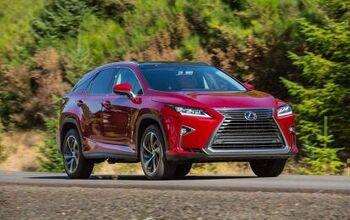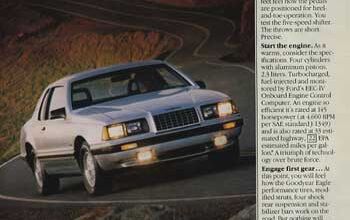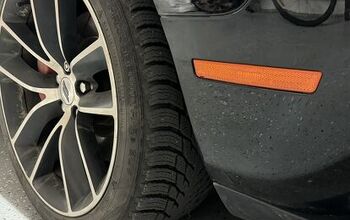QOTD: How Do You Avoid Buying Flood-Damaged Cars?

The Southeast has been battered by Hurricane Helene and its remnants. And if you'll pardon the bad pun, the used-car market will be flooded with flood-damaged cars before too long.
It happens after every hurricane or tropical storm -- unscrupulous dealers and private sellers try to move cars that have been ruined by the rising waters.
How do you, the potential used-car buyer, avoid buying one of these vehicles?
The obvious answers involve using a tool like CarFax and/or having a trusted technician perform an inspection before signing any paperwork or plunking any cash down. But there may be other tips and tricks I don't know about.
So my question to you is -- if you're going to buy a used car in the next six months to a year, how will you make sure it's not suffering from flood damage?
You know what to do. Sound off below.
[Image: Aliaksandr Antanovich/Shutterstock.com]
Become a TTAC insider. Get the latest news, features, TTAC takes, and everything else that gets to the truth about cars first by subscribing to our newsletter.

Tim Healey grew up around the auto-parts business and has always had a love for cars — his parents joke his first word was “‘Vette”. Despite this, he wanted to pursue a career in sports writing but he ended up falling semi-accidentally into the automotive-journalism industry, first at Consumer Guide Automotive and later at Web2Carz.com. He also worked as an industry analyst at Mintel Group and freelanced for About.com, CarFax, Vehix.com, High Gear Media, Torque News, FutureCar.com, Cars.com, among others, and of course Vertical Scope sites such as AutoGuide.com, Off-Road.com, and HybridCars.com. He’s an urbanite and as such, doesn’t need a daily driver, but if he had one, it would be compact, sporty, and have a manual transmission.
More by Tim Healey
Latest Car Reviews
Read moreLatest Product Reviews
Read moreRecent Comments
- EBFlex Garbage but for less!
- FreedMike I actually had a deal in place for a PHEV - a Mazda CX-90 - but it turned out to be too big to fit comfortably in my garage, thus making too difficult to charge, so I passed. But from that, I learned the Truth About PHEVs - they're a VERY niche product, and probably always be, because their use case is rather nebulous. Yes, you can run on EV power for 25-30 miles, plug it in at home on a slow charger, and the next day, you're ready to go again. Great in theory, but in practice, a) you still need a home charger, b) you paid a LOT more for the car than you would have for a standard hybrid, and c) you discover the nasty secret of PHEVs, which is that when they're on battery power, they're absolute pigs to drive. Meanwhile, to maintain its' piglike battery-only performance, it still needs to be charged, so you're running into all the (overstated) challenges that BEV owners have, with none of the performance that BEV owners like. To quote King George in "Hamilton": " Awesome. Wow." In the Mazda's case, the PHEV tech was used as a performance enhancer - which worked VERY nicely - but it's the only performance-oriented PHEV out there that doesn't have a Mercedes-level pricetag. So who's the ideal owner here? Far as I can tell, it's someone who doesn't mind doing his 25 mile daily commute in a car that's slow as f*ck, but also wants to take the car on long road trips that would be inconvenient in a BEV. Meanwhile, the MPG Uber Alles buyers are VERY cost conscious - thus the MPG Uber Alles thing - and won't be enthusiastic about spending thousands more to get similar mileage to a standard hybrid. That's why the Volt failed. The tech is great for a narrow slice of buyers, but I think the real star of the PHEV revival show is the same tax credits that many BEVs get.
- RHD The speed limit was raised from 62.1 MPH to 68.3 MPH. It's a slight difference which will, more than anything, lower the fines for the guy caught going 140 KPH.
- Msquare The argument for unlimited autobahns has historically been that lane discipline is a life-or-death thing instead of a suggestion. That and marketing cars designed for autobahn speeds gives German automakers an advantage even in places where you can't hope to reach such speeds. Not just because of enforcement, but because of road conditions. An old Honda commercial voiced by Burgess Meredith had an Accord going 110 mph. Burgess said, "At 110 miles per hour, we have found the Accord to be quiet and comfortable. At half that speed, you may find it to be twice as quiet and comfortable." That has sold Mercedes, BMW's and even Volkswagens for decades. The Green Party has been pushing for decades for a 100 km/h blanket limit for environmental reasons, with zero success.
- Varezhka The upcoming mild-hybrid version (aka 500 Ibrida) can't come soon enough. Since the new 500e is based on the old Alfa Mito and Opel Adam platform (now renamed STLA City) you'd have thought they've developed the gas version together.


































Comments
Join the conversation